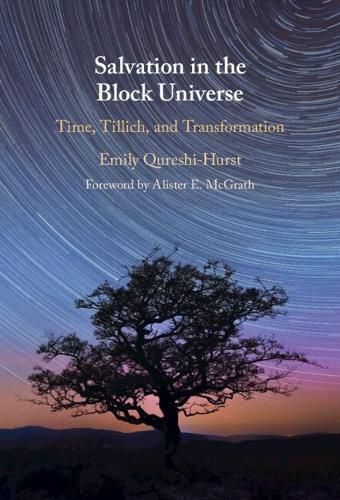Readings Newsletter
Become a Readings Member to make your shopping experience even easier.
Sign in or sign up for free!
You’re not far away from qualifying for FREE standard shipping within Australia
You’ve qualified for FREE standard shipping within Australia
The cart is loading…






Does time really pass? Should theology mould itself to fit with the findings of physics and philosophy? How should the interdisciplinary dialogue between science and religion proceed? In Salvation in the Block Universe, Emily Qureshi-Hurst tackles these important questions head-on. She offers a focused treatment of a particular problem - the problem of salvation in the block universe - and a broader exploration of a theological methodology that makes 'science and religion' not only possible but desirable via Paul Tillich's method of correlation. By bringing time and salvation into dialogue, Dr Emily Qureshi-Hurst's original insights move the 'science and religion' conversation forward into new and productive territory. Qureshi-Hurst also provides tools for other theologians and philosophers to do the same. Essential reading for anyone interested in the interactions between philosophy, religion, and science, she asks: without the reality of change, is personal salvation during one's lifetime even possible?
$9.00 standard shipping within Australia
FREE standard shipping within Australia for orders over $100.00
Express & International shipping calculated at checkout
Does time really pass? Should theology mould itself to fit with the findings of physics and philosophy? How should the interdisciplinary dialogue between science and religion proceed? In Salvation in the Block Universe, Emily Qureshi-Hurst tackles these important questions head-on. She offers a focused treatment of a particular problem - the problem of salvation in the block universe - and a broader exploration of a theological methodology that makes 'science and religion' not only possible but desirable via Paul Tillich's method of correlation. By bringing time and salvation into dialogue, Dr Emily Qureshi-Hurst's original insights move the 'science and religion' conversation forward into new and productive territory. Qureshi-Hurst also provides tools for other theologians and philosophers to do the same. Essential reading for anyone interested in the interactions between philosophy, religion, and science, she asks: without the reality of change, is personal salvation during one's lifetime even possible?